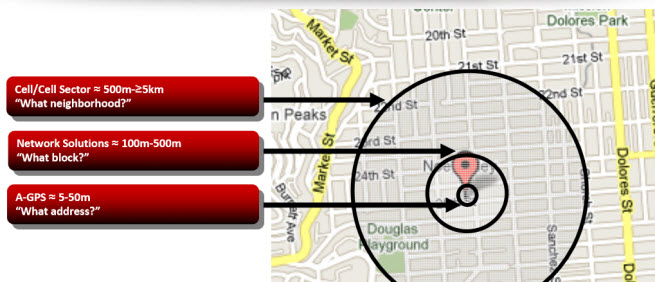Locaid says it can provide “spoof proof” locations for smartphone users. And that will allow it to verify locations for people who want to gamble online in the various states where it is legal.
The San Francisco company is announcing today that it has applied to become a licensed services provider of “geolocation and compliance technology” in Nevada, New Jersey, and Delaware. The company is currently the only licensed provider of geofencing and geolocation data for mobile online gambling providers in Nevada, Locaid chief executive Rip Gerber told VentureBeat.
The technology for verifying whether a person can legally gamble in a particular location is important. States have to verify whether a gambler is within state borders or not, given the variation in online gambling laws in the U.S. If a player cannot legally gamble where they are and the provider cannot verify that location, the result will be a higher cost for the online gambling site and lost credibility with regulators.
Gerber said the technology is spoof proof because it relies on multiple methods for verifying location. One technology is server-based, where the firm uses triangulation. It gets a fix on a cell phone by figuring out where it is relative to multiple cell phone towers in the area. Cell phones always seeks out the nearest tower. Locaid also checks with a Wi-Fi service provider about the location of a user on its network, and it checks the Internet protocol (IP) address of the user. If all of those methods show that the user is within the borders of a state that provides online gambling, then it tells the provider that it’s OK to offer gambling services to that player.
“The location data we provide is the only one that can’t be spoofed,” Gerber said. “In cities with concentrated towers, it can get to within 5-feet accuracy range.”
But to provide those services in the gambling industry, Locaid has to show it is a legitimate company, so it had to provide about six inches of paperwork vouching for the company and its executives, Gerber said. Three states have passed laws permitting some form of online gambling, and other states, such as California, are considering bills to approve online gambling. At some point, Gerber said, his company will have a real market for its “location-as-a-service” business.
“We are also following developments in California with great interest,” he said. “There is a constant push for Internet gaming, and the State has the population base to make Internet gaming very profitable there.”
Locaid provides a “geofencing” applications programming interface (API) that can be used by a variety of businesses for location verification. Lottery services, banks, fleet trackers, and others are also using Locaid.
In Nevada, Locaid’s customers include Cantor Gaming, Central Account Management Systems (CAMS), Stations Casino, Gtech, GambleID, Ultimate Poker, American Wagering, and 888 Holdings.
Gerber said the technology was born in 2008 from early mobile apps such as Foursquare, which had a hard time getting accurate locations from navigation data alone. Locaid charges subscription fees for its services. It launched in 2011 and has more than 50 employees. H.I.G. Ventures, InterSouth Partners, and Florida Growth Fund have put about $30.25 million in funding into the company to date.
Gerber previously worked at Intellisync, Carlson, and Deloitte.


